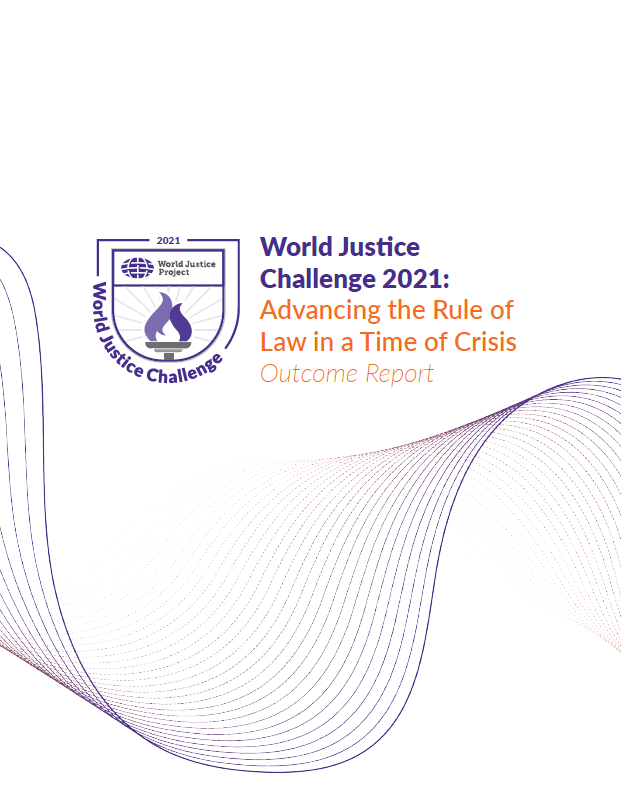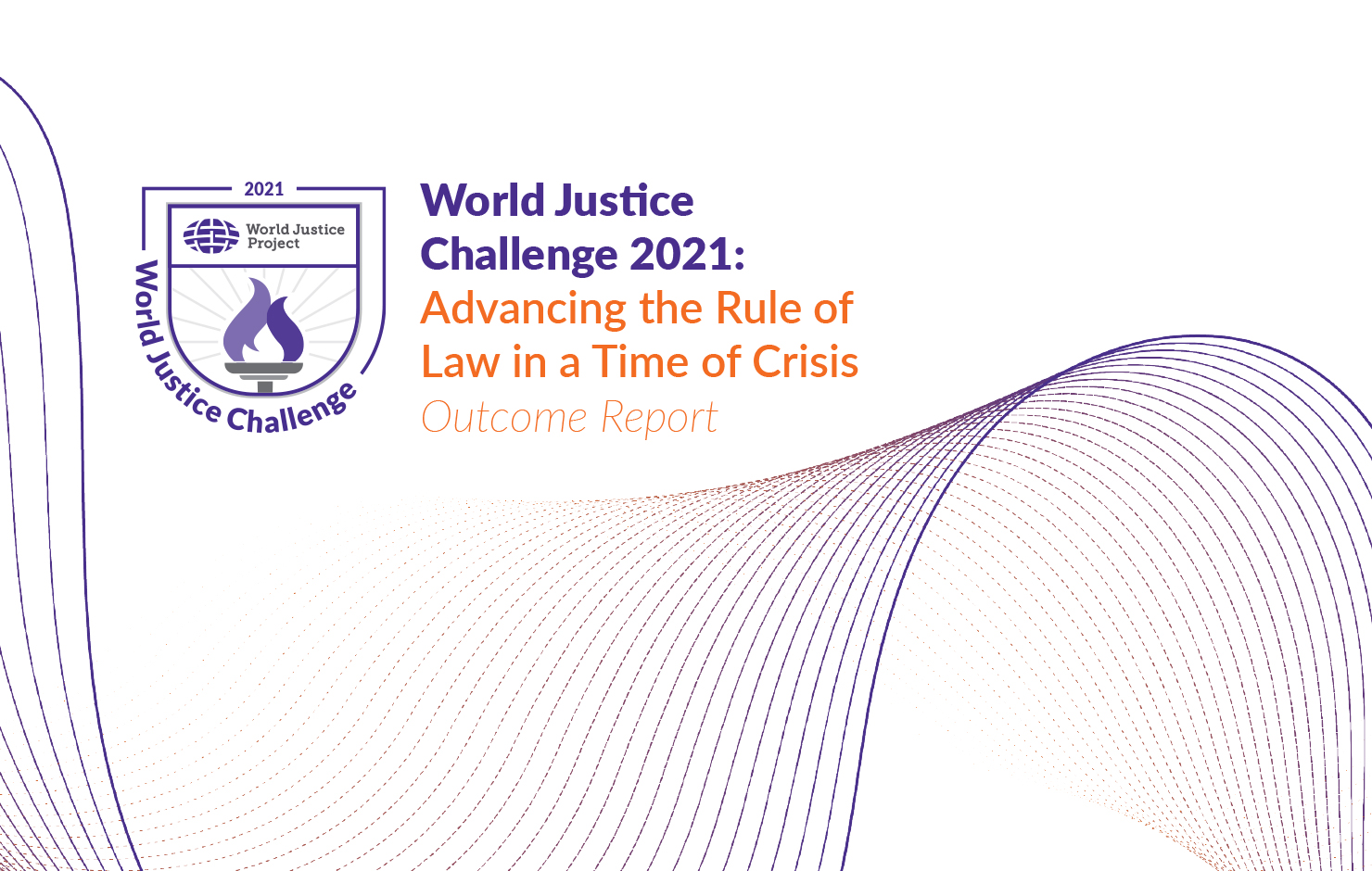

The World Justice Challenge 2021 recognized dozens of innovative projects from around the world in response to the pandemic’s effects on the rule of law. This final report summarizes the main insights we learned from justice champions working on accountable governance, anti-corruption, fundamental rights, and access to justice. It offers concrete ideas for strengthening rights and governance from the ground up, including important findings on the use of data and technology, the critical contribution of citizen voices, and ways to reach more vulnerable populations.








